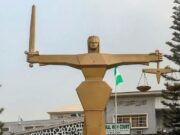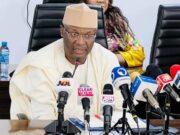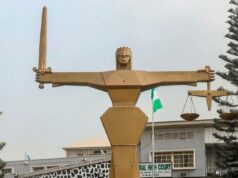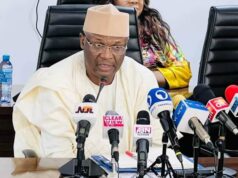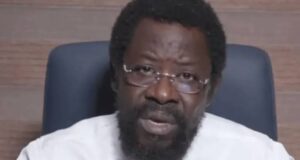Senate President Godswill Akpabio has criticized Nigerians for demanding better infrastructure while resisting taxation, which funds these developments.
Speaking at a two-day public hearing on the Tax Reform Bills on Monday, he highlighted the contradiction in expecting high-quality public services without contributing to the tax system.
Akpabio pointed out that while the government is committed to improving lives, it cannot function effectively without sufficient revenue.
He explained that tax evasion is widespread across different sectors of the economy, from informal traders to high-earning professionals.
“Tax evasion is not new in Nigeria. From traders in bustling markets to high-earning professionals, many go to great lengths to avoid paying taxes,” he said.
He emphasized that the informal economy, which accounts for a significant portion of Nigeria’s GDP, largely operates outside the tax system.
“Even within the formal sector, businesses often underreport earnings to minimize their tax liabilities.”
“At the same time, Nigerians have high expectations of the government, demanding better infrastructure and services.”
“They demand better roads to ease transportation and reduce accidents, 24-hour electricity to support businesses and households, functional hospitals to reduce medical tourism and save lives, and quality education to prepare the next generation. All of these require funding, and taxation is the most sustainable way to provide it,” he stated.
Akpabio acknowledged the frustration many feel over Nigeria’s complicated tax system, where businesses face multiple levies at the federal, state, and local levels.
He warned that excessive taxation without clarity could discourage investment and economic growth.
“If we are not careful, our system may discourage investment and economic activity,” he cautioned.
The Senate President also addressed concerns about the fair distribution of tax revenue, using breweries in Ogun State as an example.
He noted that while production takes place in Ogun, most taxes are paid in Lagos, where company headquarters are located.
“This imbalance must be addressed,” he insisted, advocating for a tax system that ensures fairness for all states.
He urged Nigerians to view taxation as a civic duty that supports national development rather than a burden.
“There is no country in the world that develops without an effective tax system,” he emphasized.
Akpabio outlined key aspects of the Tax Reform Bills under discussion, including tax harmonization to reduce duplication, lowering the cost of tax collection to maximize development spending, and introducing digital tax systems for improved transparency and accountability.
As the hearing continues, stakeholders from various sectors are expected to contribute ideas to create a tax system that is fair, transparent, and growth-oriented.
The central question, however, remains: Can Nigerians demand good governance while resisting taxation? According to Akpabio, national development is a shared responsibility, requiring both government accountability and citizen participation in funding the system.


